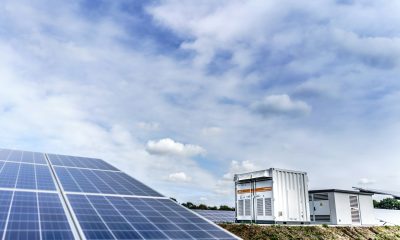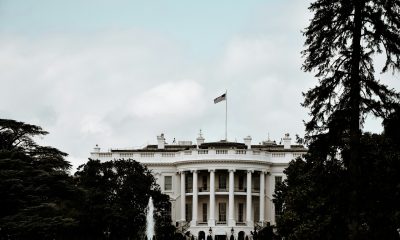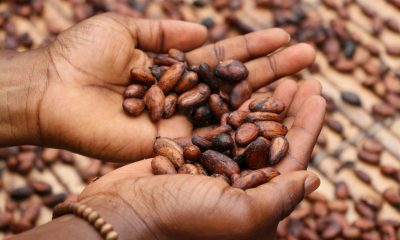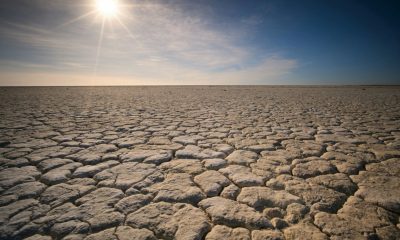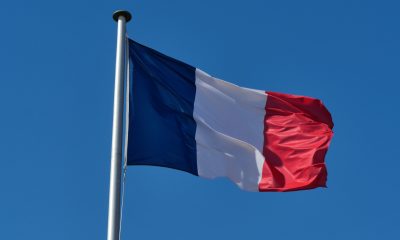Africa
Gas and renewables will power Africa
According to Akinwumi Adesina, the president of the African Development Bank (AfDB), the future of Africa is in renewable energies. The CEO of AfDB announced the bank’s deployment of a $500 million plan in 2020 to promote green energy production. Nevertheless, coal is still the third-largest source of energy (22%), behind oil (42%) and gas (28%).
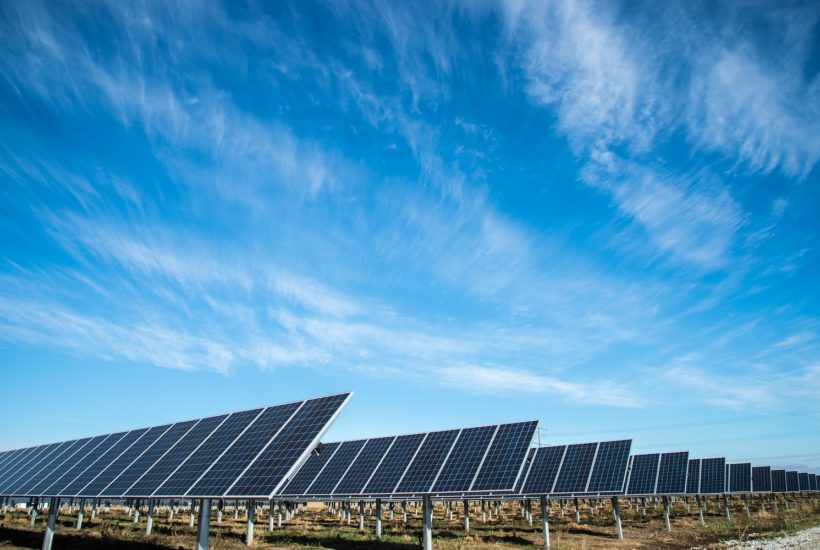
Despite Africa’s huge reserves of coal, the African Development Bank is mobilizing to make clean energy more competitive.
Breaking industry stories about European or African economies are often not covered by many newspapers. Born2Invest’s companion app curates a collection of these business headlines an important part of its mission. Our companion app helps you keep up-to-date with the latest economic, business, marijuana, fintech, and Africa news.
“Coal no longer has a place in Africa, it belongs to the past. The future is in renewable energies. As for us at the African Development Bank (AfDB), we are getting rid of coal,” the institution’s President, Akinwumi Adesina, told the UN General Assembly in late September.
Yet on the continent, it is still the third-largest source of energy (22%), after oil (42%) and gas (28%). Far behind are hydropower (6%), renewable energy (1%) and nuclear energy (1%), according to the AfDB Atlas.
Alternative energy future: possible and affordable
In the meantime, the bank’s CEO announced the bank’s deployment of a $500 million plan in 2020 to promote the green energy production, which, as the institution predicts, is expected to generate a total of $5 billion in investments.
Akinwumi Adesina also mentioned investment projects worth $20 billion in solar and clean energy, with a total capacity of 10,000 megawatts for 250 million Africans. “There is a reason why God gave sunlight to Africa,” the AfDB President said.
According to the British NGO CoalSwarm, which lists the world’s fossil fuel infrastructure, more than 100 coal-fired power plants with a combined production capacity of 42.5 gigawatts are at different planning or development stages in 11 African countries, excluding South Africa. That is more than eight times the existing capacity. These include the coal-fired power plant projects in Bargny, near Dakar, San Pedro, Côte d’Ivoire, or on the tourist island of Lamu, Kenya, on a site that is a World Heritage Site.
Increasingly challenged on environmental and public health grounds by local populations, these projects are mostly co-financed by the AfDB and foreign investments, nearly half of which are from China. In its indictment against coal, Akinwumi Adesina did not mention the fate of these power plants.
Less coal and hydro, more solar
But this is not the only paradox. Faced with the climate emergency, coal, which is responsible for more than 40% of the global CO2 emissions, causing heavy pollution of the soil, water and air, as well as many public health problems (asthma, bronchitis, etc.) for people living near power plants, is set to be phased out by 2030 by some 20 countries, from France to Costa Rica, via the Fiji Islands, Italy and New Zealand.
But despite some countries banning coal in favor of renewable energies, it experienced another year of recovery in 2018, after that of 2017, according to the BP Statistical Review of World Energy. World production grew by 4.3% last year, while consumption rose by 1.4%, its biggest increase since 2013, due to demand from India and China.
“All the growth in global coal consumption has gone to the electricity sector. Renewable energy has grown rapidly, but not fast enough to meet all the growth in electricity demand, and coal has been sucked into the energy sector as a balancing fuel,” said Spencer Dale, Chief Economist and author of the BP report.
In this context, African coal production soared between 2006 and 2018 from 140.5 million tonnes of oil equivalent to 156 million tonnes. In the coal-rich country of South Africa, it accounts for 86% of electricity production, compared to 2% for solar and wind power.
The national company Eskom, which supplies more than 90% of the country’s electricity, owns and operates more than 13 coal-fired power plants. Including 12 in the Highveld region, one of the most polluted in the world in terms of nitrogen dioxide and sulfur. The environmental pressure is also increasing in that area.
Last June, two environmental NGOs, GroundWork and Vukani, sued the South African government for violating the constitutional “right” of citizens to breathe clean air in the Highveld region.
__
(Featured image by American Public Power Association via Unsplash)
DISCLAIMER: This article was written by a third party contributor and does not reflect the opinion of Born2Invest, its management, staff or its associates. Please review our disclaimer for more information.
This article may include forward-looking statements. These forward-looking statements generally are identified by the words “believe,” “project,” “estimate,” “become,” “plan,” “will,” and similar expressions. These forward-looking statements involve known and unknown risks as well as uncertainties, including those discussed in the following cautionary statements and elsewhere in this article and on this site. Although the Company may believe that its expectations are based on reasonable assumptions, the actual results that the Company may achieve may differ materially from any forward-looking statements, which reflect the opinions of the management of the Company only as of the date hereof. Additionally, please make sure to read these important disclosures.
First published in LePoint, a third-party contributor translated and adapted the article from the original. In case of discrepancy, the original will prevail.
Although we made reasonable efforts to provide accurate translations, some parts may be incorrect. Born2Invest assumes no responsibility for errors, omissions or ambiguities in the translations provided on this website. Any person or entity relying on translated content does so at their own risk. Born2Invest is not responsible for losses caused by such reliance on the accuracy or reliability of translated information. If you wish to report an error or inaccuracy in the translation, we encourage you to contact us.

-

 Biotech1 week ago
Biotech1 week agoUniversal Nanoparticle Platform Enables Multi-Isotope Cancer Diagnosis and Therapy
-

 Fintech2 weeks ago
Fintech2 weeks agoRuvo Raises $4.6M to Power Crypto-Pix Remittances Between Brazil and the U.S.
-
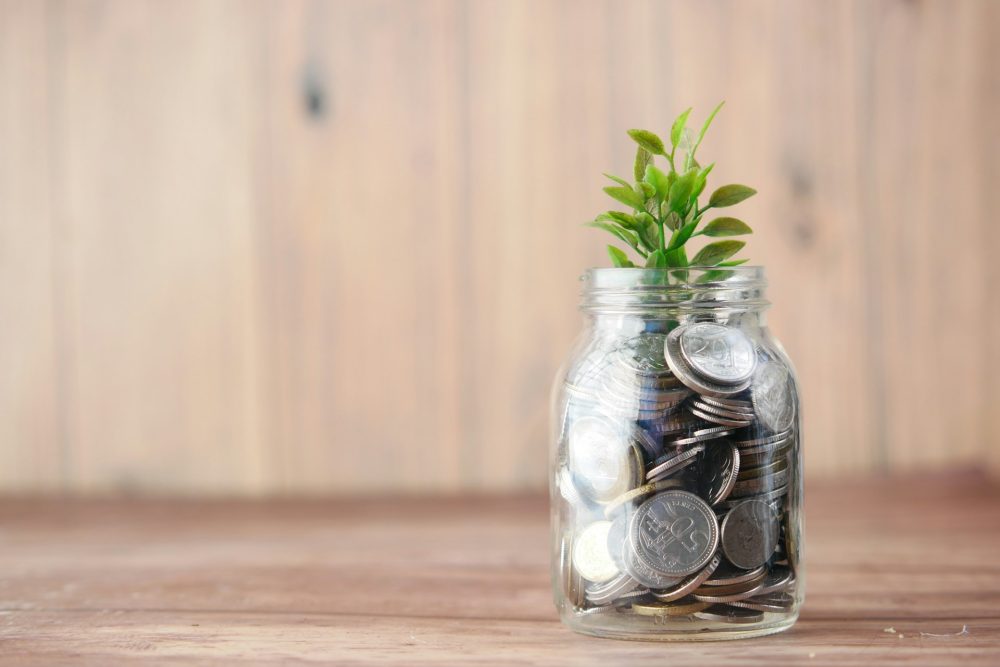
 Impact Investing4 days ago
Impact Investing4 days agoMainStreet Partners Barometer Reveals ESG Quality Gaps in European Funds
-

 Biotech2 weeks ago
Biotech2 weeks agoEurope’s Biopharma at a Crossroads: Urgent Reforms Needed to Restore Global Competitiveness
